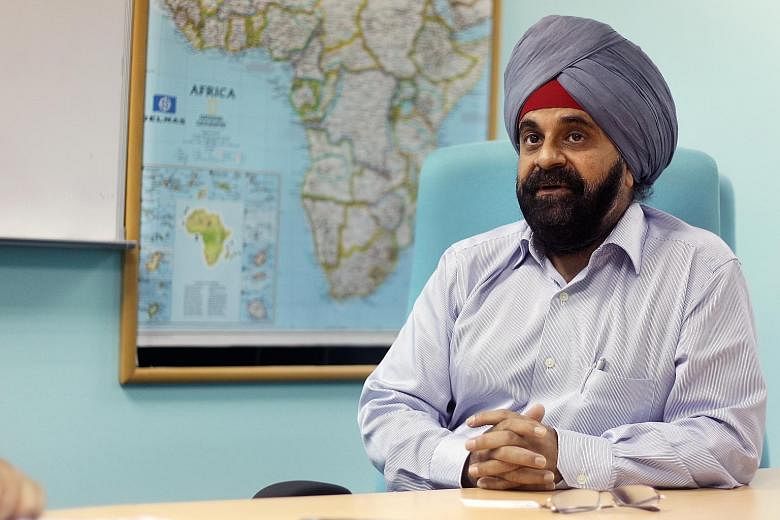Inderjit Singh
GPCs are useful and do much good work, both inside and outside Parliament, says former Ang Mo Kio GRC MP Inderjit Singh. To illustrate his point, he cites an instance when the Government Parliamentary Committee (GPC) for Finance, Trade and Industry - of which he was chairman at the time - met a minister to discuss the merger of two statutory boards.
Mr Singh tells Insight that the minister told the meeting: "I am not one who will change what other ministers have put in place in the past."
Mr Singh - an MP not known for mincing his words - recalls that he "challenged the minister to be bold enough to make changes when they are the right thing to do".
He adds: "All the key civil servants were present, and many were taken aback by my challenge."
Mr Singh served as a People's Action Party MP from 1997 to 2015. He is now CEO of consumer electronics firm Solstar International.
"We need MPs to be willing to challenge the ministries and ministers on issues they strongly believe in and to represent the people in these discussions," he says.
"I remember a lesson I learnt from (founding prime minister) Lee Kuan Yew - we should not hold back in asking tough questions. It is the ministers' job to provide their arguments to convince others," he adds.
Many of these exchanges between GPCs and ministers occur in a closed-door setting, such as another meeting his GPC had with a minister for trade and industry and his officials on the economy.
He says he was told that the Government would grow the economy as fast as it can and "worry about the effects... when they happen".
He begged to differ. "I argued against the growth-at-all-costs economic policy and (pointed out) how Singaporeans' lives will be badly affected," he tells Insight.
The Government disagreed with Mr Singh's characterisation of its economic policy. But this did not stop him from making the point.
In Parliament, he kicked off the 2008 debate on the annual Budget statement, as is traditionally done by the GPC chairman for Finance, Trade and Industry.
His speech was fierce, and made the case that the "'grow-at-all-costs' policy, with cost increases triggered or allowed by the Government, has worsened the income divide".
That speech irked then Finance Minister Tharman Shanmugaratnam, Mr Singh recalls. "The minister gave a strong rebuttal and almost ridiculed me for the idea."
But to Mr Singh, such cut-and-thrust is par for the course - and is what makes the GPC system work.
He says: "Looking at the overall impact of GPCs, especially the work GPCs do outside Parliament, it is worth keeping the system.
"For the ministries that took the GPCs seriously, they benefited from the system. Ministers must look at GPCs as their additional resources and not worry too much about someone else questioning or challenging them."


